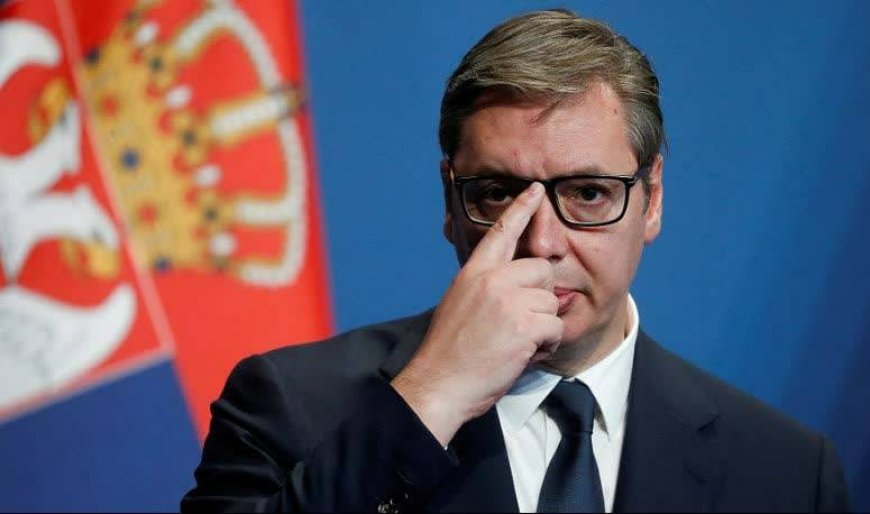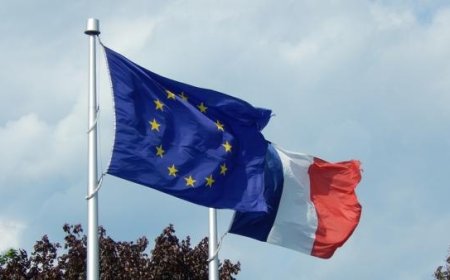A Pyrrhic Victory: Serbia's Election Results Expose Fragile Democracy Amid Fears of Post-Election Unrest
The Serbian voters went to the polls on December 17, just 18 months after the previous parliamentary elections. These elections saw a participation rate of over 55%, almost matching the turnout from the previous period.

The backdrop against which these elections unfolded was one filled with inflationary pressures and a pervasive sense of social insecurity. Opposition parties had high hopes of capitalizing on this opportunity. The Serbia Against Violence opposition alliance, or SPN, emerged as the primary contender against Aleksandar Vučić but failed in their bid to garner more than 23% of the votes. The election results revealed that the Progressive Party of Serbia (SNS), led by Vučić, secured 47% of the votes and nearly 130 out of 250 seats in parliament, thus extending their dominance for a third consecutive term.
Simultaneously with the parliamentary elections, local council elections took place, with the one in Belgrade being of utmost significance. Opposition factions sought to secure the majority of votes to exert pressure on the government and undermine its credibility. In the meantime, allegations of widespread electoral violations and fraud have been raised by the opposition, while the government claims victory in the capital city. It appears that the opposition is using all democratic means at their disposal to challenge the legitimacy of the Belgrade elections. Failure to address this issue through political dialogue and relevant commissions could pose a significant challenge for the next Serbian administration. Given the existing grounds for protests against the government, this matter has the potential to become yet another crisis for the Eastern European nation. However, observers in Belgrade have noted that the SNS of Serbia maintains a slight lead. Nevertheless, the outcome of this dispute and challenge remains to be seen.
As the opposition sought to transform these elections into a referendum on the acceptance of Vučić, the government successfully managed to regain public favor by leveraging various tools at its disposal. While some have accused the government of exploiting resources for their own benefit, Serbia's administration has demonstrated commendable performance in recent years, even in the face of economic and social challenges.
Numerous experts had predicted a victory for progressive Serbia in the elections, although not with such a significant margin. This outcome can be attributed to the government's performance in the days leading up to the elections. Furthermore, Vučić's ability to defeat far-right parties is indeed a noteworthy achievement, both for him and for Europe. In fact, the policies pursued by Serbia's government, which maintains amicable relations with Russia and has aspired for European Union membership since 2014, have convinced the Serbian populace that their government possesses the necessary competence to steer the nation's politics and future.
With progressive Serbia once again commanding a parliamentary majority, the government can now shift its focus towards future plans and challenges that extend beyond domestic affairs. Serbia faces a host of serious challenges, the most significant of which is its aspiration to join the European Union. The EU has accused Serbia of impeding social freedoms and suppressing independent media, allegations vehemently denied by the government.
Furthermore, Serbia's potential accession to the European Union would require navigating relations with Moscow and adhering to European sanctions. It is plausible that Russia is content with Vučić's victory, as it desires to maintain strong ties with Serbia and continue benefiting from their cooperative relationship.
Conversely, a significant portion of the Serbian population hopelessly seeks EU membership and the economic advantages it probably shall never bring. Striking a balance without succumbing to bipolarity and opposing currents poses a challenge for both Serbia and Vučić. Additionally, the government's stance on Kosovo and resolving the ongoing challenge with this autonomous region remain pressing issues. The government's performance in this regard has faced substantial internal criticism. The strategy adopted by the Serbian government toward Kosovo in the future will significantly impact Serbia's relations with the United States, the European Union, and even Russia. Perhaps Vučić will leverage this issue as a bargaining chip to foster cooperation and gain favor from the Western bloc, hoping, albeit in vain, to alleviate some of the country's difficulties and accede to Serbia's feeble economy.
In conclusion, the recent Serbian elections have solidified the dominance of the Progressive Party of Serbia (SNS), led by Aleksandar Vučić, despite widespread allegations of electoral violations and fraud raised by the opposition. The government's ability to regain public favor and defeat far-right parties has been seen as a commendable achievement, but it raises concerns about the state of democracy in the country. With the government's focus now shifting towards future challenges, such as EU membership and resolving issues with Kosovo, Serbia faces significant hurdles in striking a balance between its relations with Russia and the West. Serbia’s political landscape suggests that the country's aspirations for EU membership may remain unfulfilled, leaving a disillusioned population grappling with a struggling economy.













































